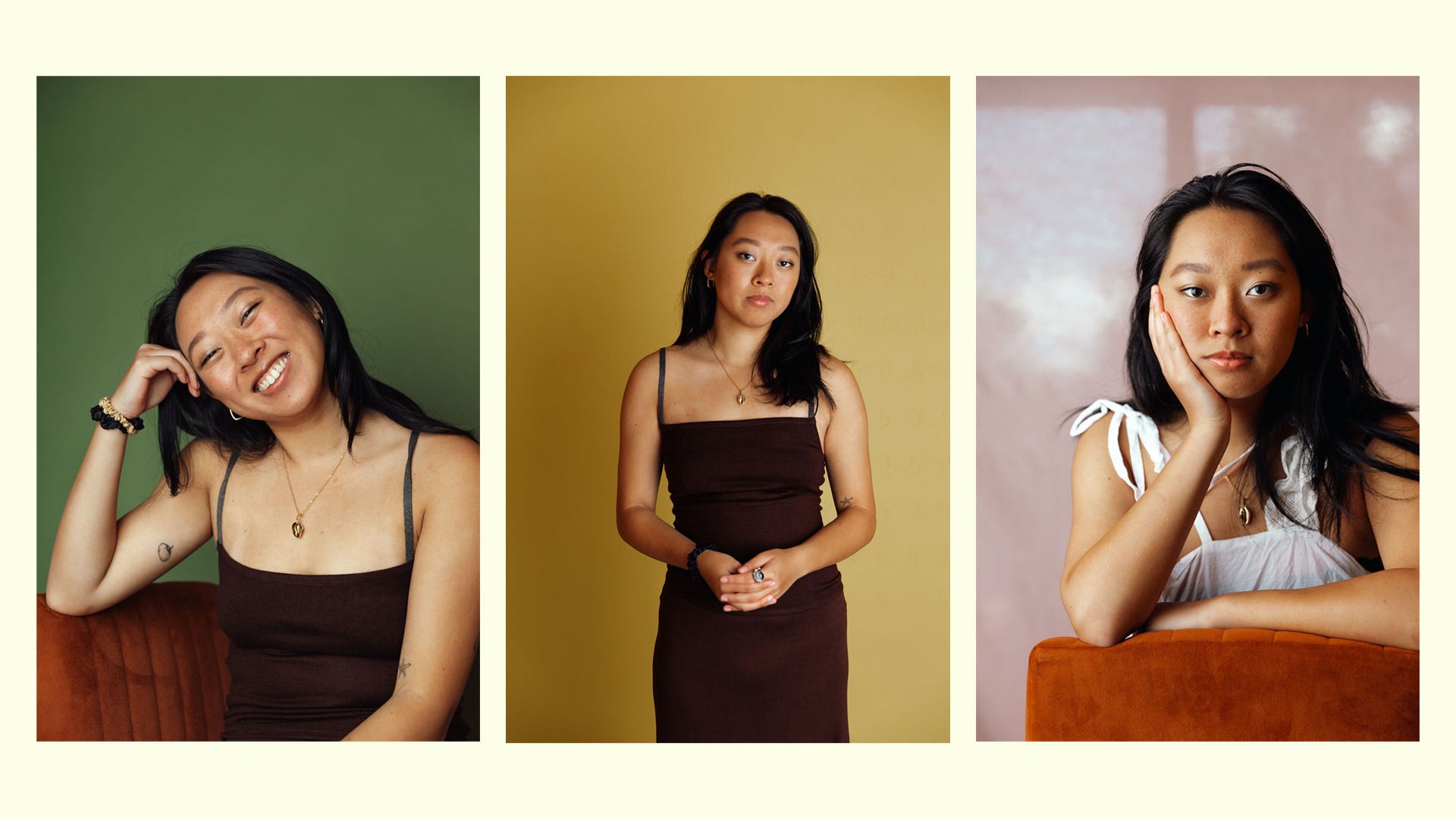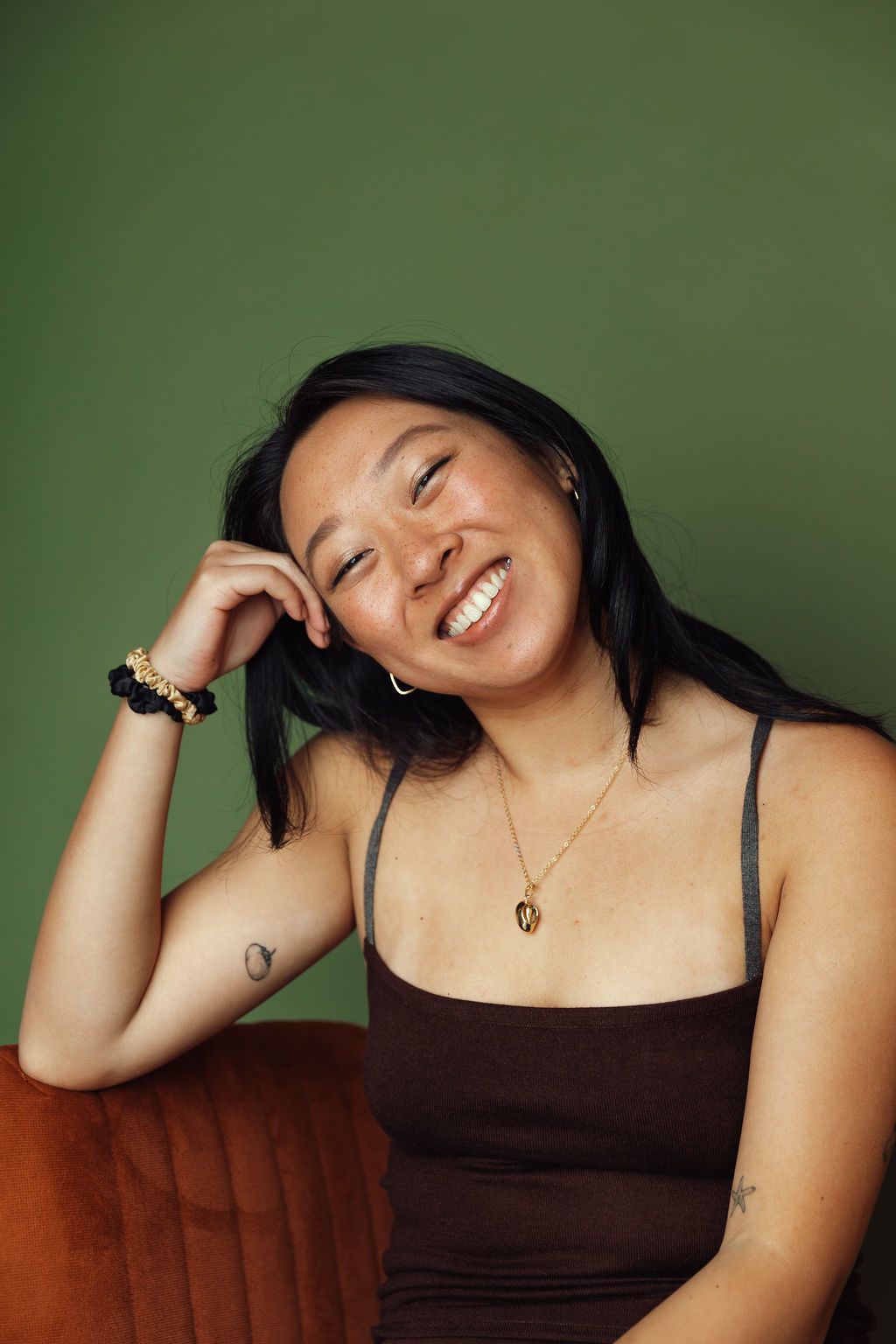Meet Our New Kaiwāwahi!
Sherry Zhang 章雪莉 introduces herself and her vision as the new Editor of The Pantograph Punch.
SELF-TAPE
Ko Sherry toku ingoa. For the past two years, I’ve been the Communications Manager at The Pantograph Punch. While I’ve enjoyed being the sexy lil omnipresent voice hyping up our creative whānau, I’m excited to step into this new role and continue the legacy of punchy (ha!) arts writing.
When asked to introduce ourselves, do we open with our job title? Is our worth measured by the ability to contribute to society, or the economy? Do we name the various roles we hold in our whānau and community? Is the answer in our whakapapa, and do we mihi to our tūpuna and the journeys before our time? Do we see ourselves as part of the collective?
Is the answer in our whakapapa, and do we mihi to our tūpuna and the journeys before our time?
On my LinkedIn, it says I am a writer and journalist. BA/LLB. Cool. I’ve been an intern at The Spinoff, and covered economics at Bloomberg’s Wellington bureau. These are different iterations of myself. I adjust my CV and biography (250 characters plz!) depending on the client.
I am a Virgo sun, Virgo rising, Gemini moon. Wood Tiger. ENFP. 170 cm. Size 9 feet. Sensitive–combination skin. Oat milk flat white. 1.75 left eye, 2.5 right eye. Purchaser of an unread stack of books on the bedside table. Pōtiki – the youngest child.
My surname, 章, means except, a movement in a music score, an essay, a passage. My grandfather was a playwright and theatre director, writing musicals in our village dialect, Longyan Hokkien. My grandmother was a dancer. They met on the stage. Yet the hardship and poverty (and big ol Cultural Revolution) meant my dad and his siblings were pressured to pursue everything but the arts. The same goes for my cousins and me.
My surname, 章, means except, a movement in a music score, an essay, a passage
In my teenage years, I competed in spoken-word slams, which are archived in the depths of the internet. By my early 20s, I would lie to my parents about going to lectures, and take a bus, a train and another bus out south to Massive Theatre Company rehearsals. It feels disingenuous to say I’ve always loved the arts. I hate how burnt out I get juggling a creative practice on top of full-time work, study and life. I hate how it was the source of angst, tension and misunderstanding in my family. I hate how it generally gives me three mouth ulcers per project. I’ve sworn to never act again or never write poetry again with varying degrees of melodrama. Yet I cannot help but come back. I can’t help but keep loving it – toxic af yah! As a creative practitioner, I am my grandfather’s worst nightmare. But I hope he’s also a bit stoked by the nerve. I know my grandmother is gleeful at my rebellion.
THE HOPES, THE VISION
The things we read as a kid shape us. My first job was as an unpaid copy editor at my parents’ café, standing on three stacked chairs, correcting the misspelt chalkboard menus. It’s also where I devoured gossip mags, Reader’s Digest and old newspapers – the titillating and the sensational! While my taste is a lil more sophisticated nowadays, I’m no snob. My expectation is for The Pantograph Punch to be accessible, engaging, fun and intelligent.
Working hard at parents' café! Photo supplied by author.
As a Nancy Drew and the Hardy Boys stan, I also always enjoy the deep dive, and am keen for the investigative pieces that meaningfully contribute to national and global art discourse. A serious, ‘political’, male news journalist once made fun of me for being an arts, culture and lifestyle writer. Ha – I laugh back! The creative industry is deeply tied to questions of politics, governance, power and economics. Look at the 2022 Budget, with Te Matatini receiving only a third of the pūtea provided to the New Zealand Symphony Orchestra. Rather than taking cheap shots, let’s question how the Ministry of Culture and Heritage and local councils allocate funding, the values these decisions imply for wider society. Arts doesn’t exist in a vacuum: these conversations hold tangible impact.
The Pantograph Punch glows in her tāngohengohe, sexy and flirty body
There’s power in softness too – in the tenderness of Te Aniwaniwa Paterson’s exploration of decolonial ways of loving, in freaky-deaky Queer DJ club nights, and in Ana McAllister’s sonnets to her taonga pūoro. The Pantograph Punch glows in her tāngohengohe, sexy and flirty body.
The arts can facilitate social cohesion, community empowerment, self-determination and wellbeing. We need all kinds of writers and coverage if we’re ever going to disrupt the colonial tomfoolery and hold conversations unmediated by a purely Pākehā lens – ones that include tauiwi and minority perspectives which are otherwise sidelined, that honour tino rangatiratanga and centre tangata whenua. Our artists and creatives are radical disruptors, leaders and influencers. Cracking jokes and writing beautiful prose can fuck shit up. I want us to be unafraid to push some buttons and piss the right people off.
PANTOGRAPH MEET-CUTE
The first place I ever got a pitch accepted (outside the realm of student media) was The Pantograph Punch. It was the first time I felt seen as a ‘real’ writer – whatever that means. It was 2020. I was going through a break-up while reporting the rising Covid-19 case numbers as a journalist at 95bFM. The days stretched like taffy, the world outside stood still. Fresh from rejection, I emailed my academic essay slash lockdown fever-dream ‘Fruit Foragers’ out into the world, not expecting much. Yet The Pantograph Punch nibbled back.
As an emerging writer, the editorial care I received became the benchmark I would use to measure my future writer–editor relationships. In times of discomfort and tension, I turn to former Kaiwāwahi Ataria Sharman’s wisdom, honesty and commitment to stand with her ethics as my source of inspiration. I hope to ensure that Pantograph always holds the same care for our new writers.
To wāwahi is to break, open, split and divide
I arrive at this role with excited/nervous sweaty pits – curious about the ways I can work to shape the next iteration of The Pantograph Punch as Kaiwāwahi. To wāwahi is to break, open, split and divide. I see discourse and criticism, based on a foundation of respect and connection, as a way of breaking open the space, cutting through the noise, and letting the air in.
When I applied to join The Pantograph Punch whānau as Communications Manager, I opened with Selina Tusitala Marsh’s poem ‘Calabash Breakers’ in my cover letter. It’s a prayer I ground my ambitions in.
…we all know
the hierarchies
the tapu
the boundaries
always crossed
by someone
petulant
we all know
the unsettled
the trouble makers
the calabash breakers
they sail the notes of our songs
stroke the lines of our stories
and reign in the dark hour
we should know them
we now need them
to catch bigger suns
The calabash, gourd or hulu (葫芦) is a mystical symbol across my community and many others. It provides not just food for nourishment, but a container for water, space, stories, medicine and memory. What if I ask you to wāwahi those containers with me – to mess up, smash and put thoughts back together again in new forms? Could this also be a way of worshipping, respecting and honouring creatives before us, while making way for those yet to come? I see breaking things open as an attempt to understand ourselves, others and te ao on a deeper level. To see criticism as a mechanism to wāwahi, to raise eyebrows, and to meet the incredulous stares of “How dare you?” with “Exactly, we dare to.” To ground disruption in compassion, love and respect. So, I encourage all the ‘calabash breakers’ to play in this space with me. To the odd hats and annoying kids who ask too many questions, haere mai. Let’s have all the naughty, rebellious, frightening, lightning kōrero we want to.
A YEAR OF… A LOT
I step into this role with commitment to the wellbeing of our staff, writers and creative practitioners while we navigate the precarity of the funding landscape. The Pantograph Punch has never been static. From essays, reviews, poetry, short stories, listicles, events and more, we’ve always transformed our editorial model to meet the desires and needs of ourselves and our audiences. Expect more transformations as we work to ensure quality content, fair reimbursement and sustainable working environments.
Let’s dream together to ensure our taonga tuku iho, knowledge and stories flow to the next generation. With discourse, disagreement, connection and celebration as nourishing of acts of love, let’s fucking go! Here’s to another year of gorgeous writing, personal essays, thoughtful analysis and journalism grounded in care that leaves our community better off for it.
With discourse, disagreement, connection and celebration as nourishing of acts of love, let’s fucking go!
And if my personality is just an accumulation of tea leaves and palm readings, may my double earth sign Virgo sentiments ground us in stability, consistency and creative flow.
Mauri ora!
Header image photos by Julie Zhu.


